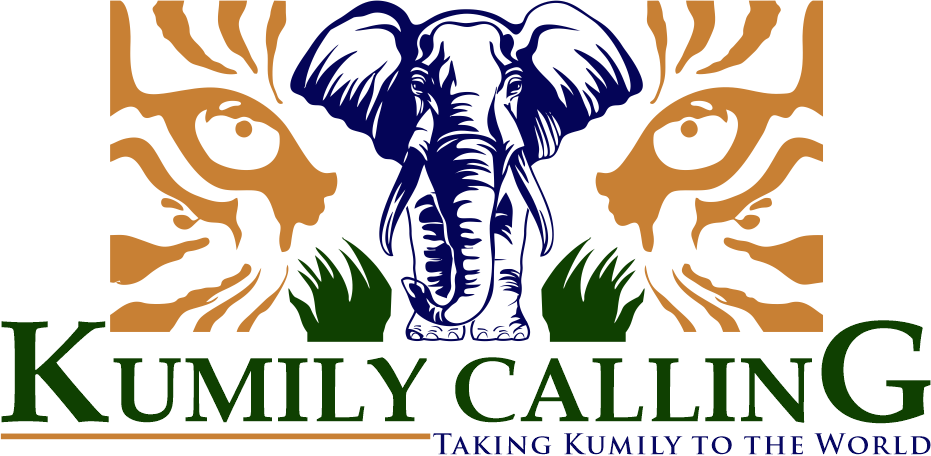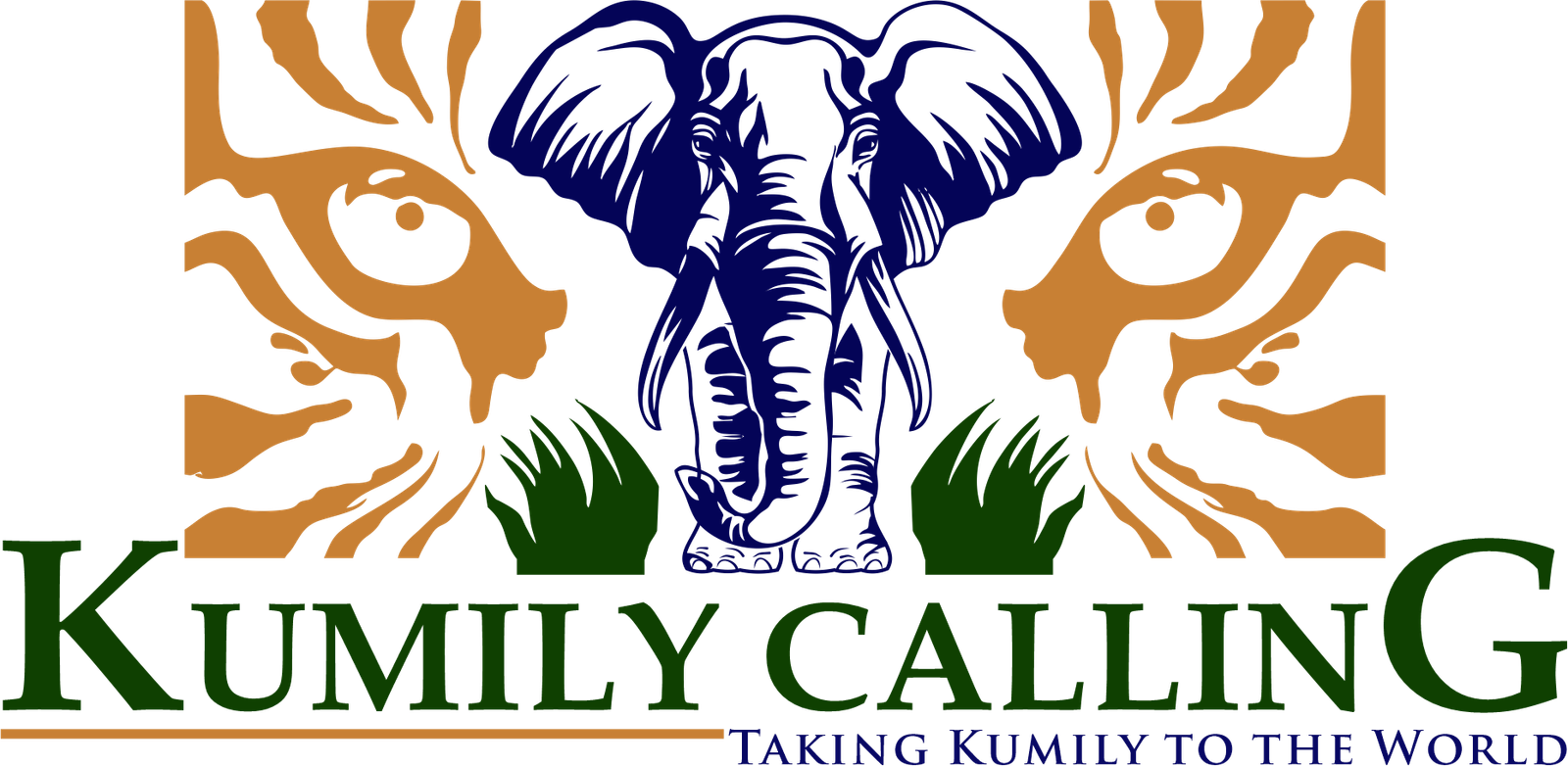Nature has endowed Kumily with many beautiful gifts. One such gift is the honey produced at Philips’ Natural Honey and Bee Farm at Attappallam where great care is taken to maintain the purity of the honey.
Philips’ Natural Honey and Bee Farm commenced about 45 years ago and is currently being managed by second and third generation apiarists. It all began when Mathew Philip started cultivating Bees as a hobby. His son Philip was drawn to this hobby at the age of twelve and started caring for the bees from a tender age.

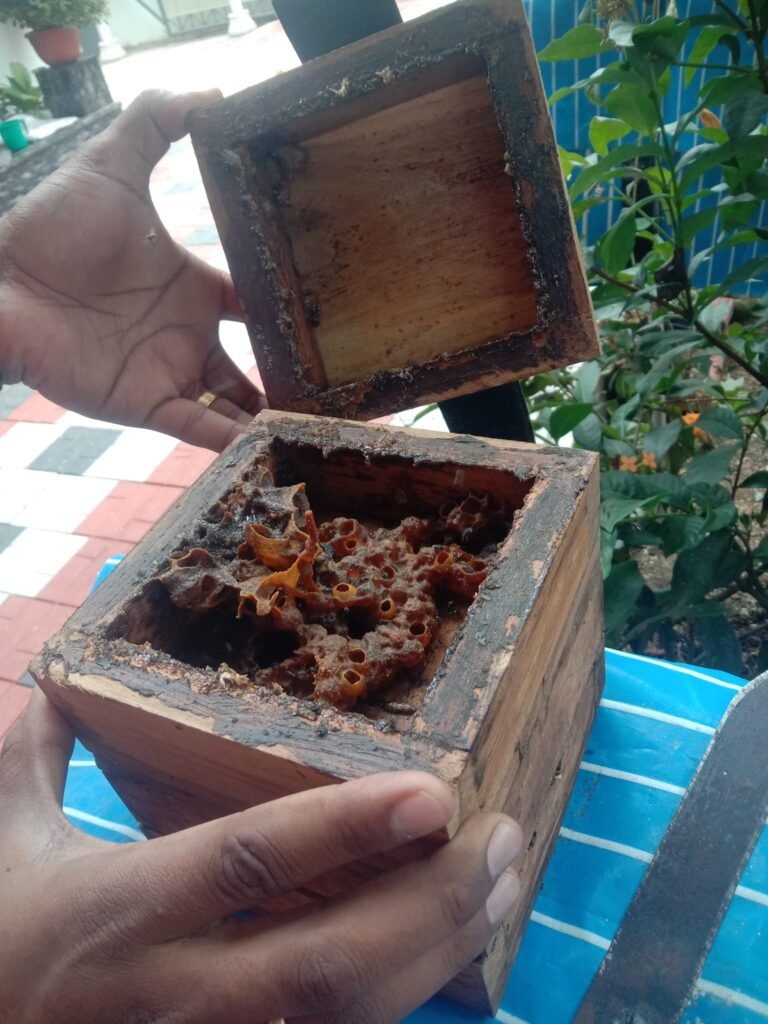
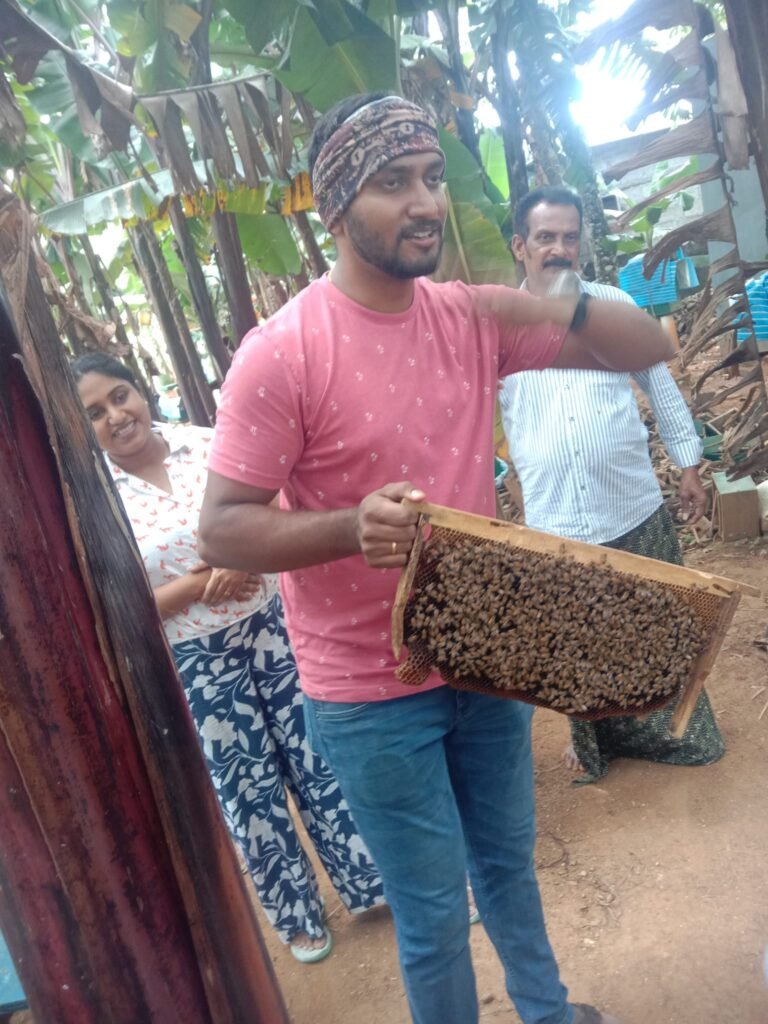
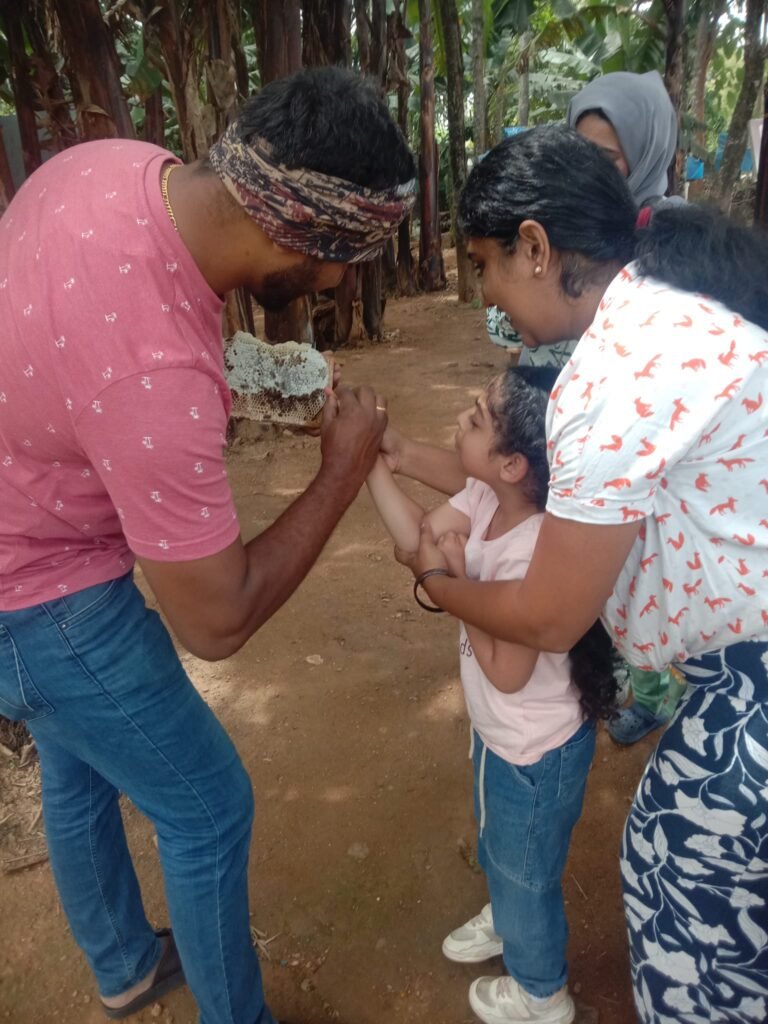
Philips initiative has grown into what it is today with about 15 staff and labourers being employed by them. Currently Philip is ably assisted by his son Tom Philip and his daughter in law who is also enthusiastic about bee keeping and comes from a family of apiculturists. Incidentally the equipment used at the farm such as the smoker and extractors are all made by Tom’s Father in law.
At the farm three kinds of bees are being reared. There are the small Apis Florea and the large Apis Cerana Indica variety of bees which produce the bulk of the honey and an Italian variety of Apis Mellifera, sometimes known as the European bee which they are rearing mostly for research purposes – for it is said that a hybrid of Indo-Italian swarms can produce more honey.
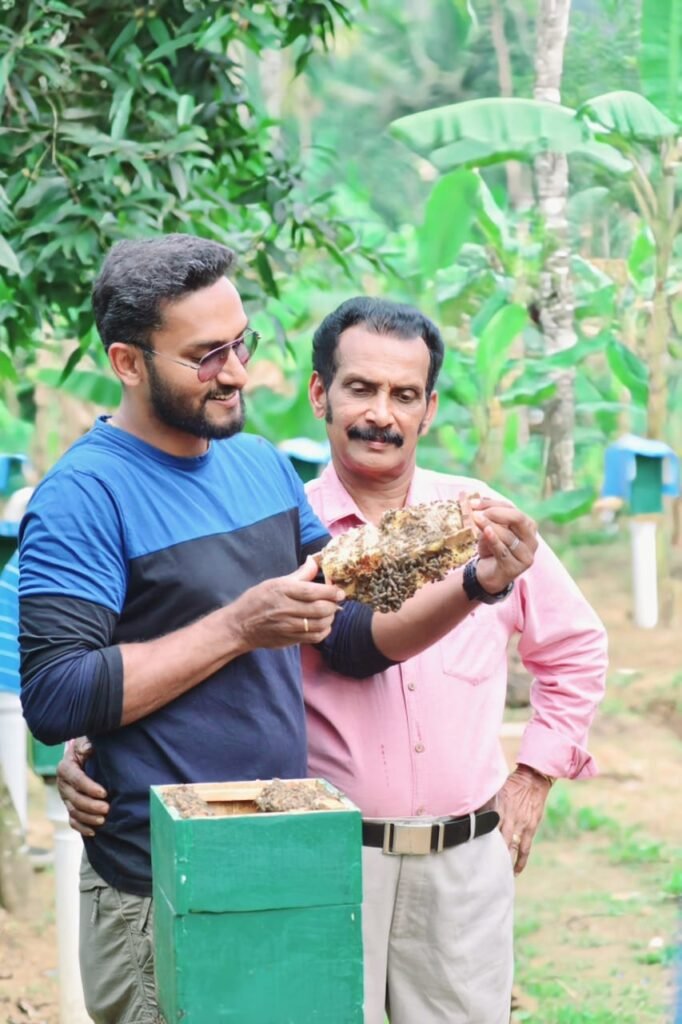

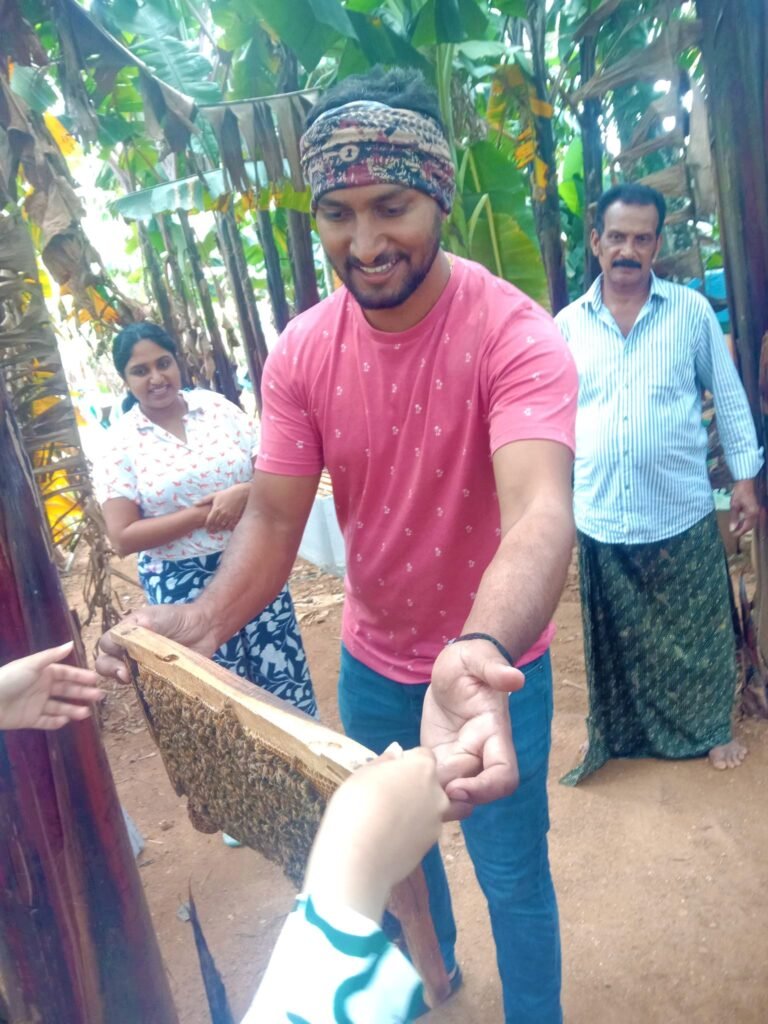
Tom Philips mentions that approximately 35 tonnes of honey is produced for sales every year. The honey produced by the small bee Apis Florea is used for medicinal purposes and is costlier than the honey produced from the bigger bee Apis Cerana Indica which is used for general consumption. The honey is extracted at the farm without human contact and is treated in sunlight to remove any traces of wax or water from the honey.
During a good season a hive of the small bee can produce approximately 20 kilogrammes of honey per hive. The harvesting of Honey from the hives is usually carried out between January to May every year after which the monsoon sets in and the bees have to feed themselves. Phillips therefore ensures that there is sufficient honey for the bees to survive the monsoon. After the Monsoon season the Queen Bee lays eggs and the hatching season begins.
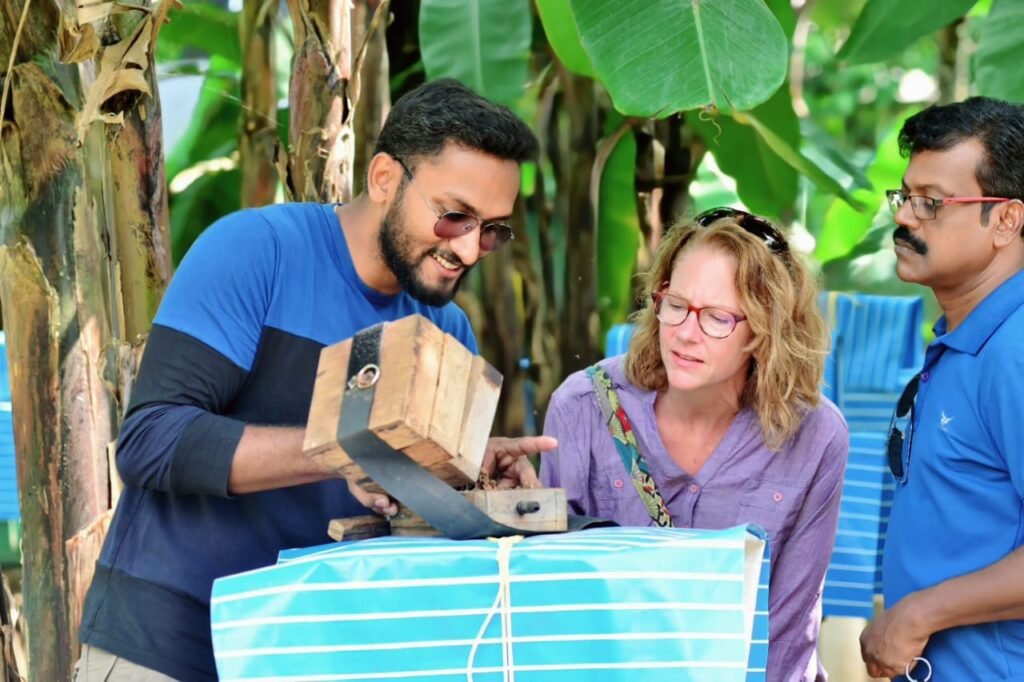
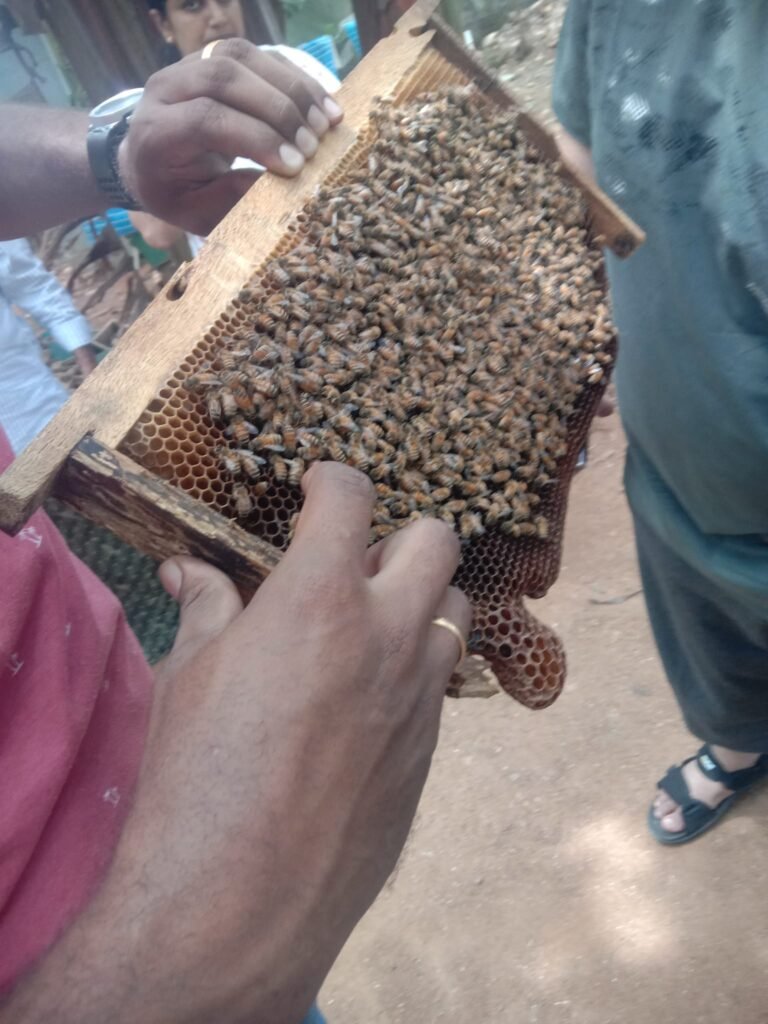

Tom is quite clear that they do not endorse flavoured Honey or honey made from flowers of a particular species. Bees cannot be controlled to collect honey from only one particular variety of flowers. Moreover, Bees travel over a 5 kilometre radius in search of honey and the chances of their collecting honey from a single plant species is rather slim. Therefore the concept of flavoured honey is not acceptable to him. Their products are straightforward and they do not practice any marketing gimmicks to sell their honey.
Tom Philips takes great pride in the fact that the honey and beeswax produced in their Farm is being exported to several countries across the globe. The raw beeswax exported by them is used by manufacturers of beauty products and pharma companies as a base for their products including balms and creams. Tom also informs us that they have no distributors and directly market their honey. They also supply bee hives, and other equipment to interested apiarists throughout India.

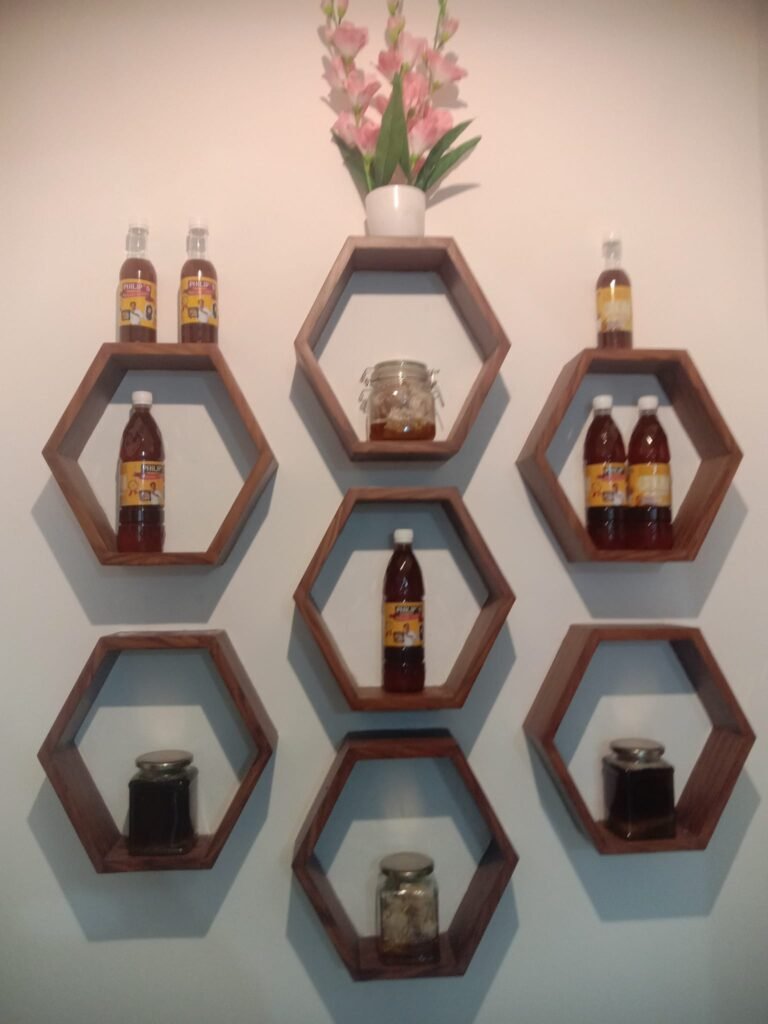

The Philips’ Farm has apiaries or hives located in several places across Kerala and Tamil Nadu from which they harvest the honey. They also collect Honey from Bee Fences or hives set up as fencing around the perimeter of Plantations and gardens to ward off elephants. When the elephants enter the plantation they disturb the bees which turn hostile forcing the elephants to back off.
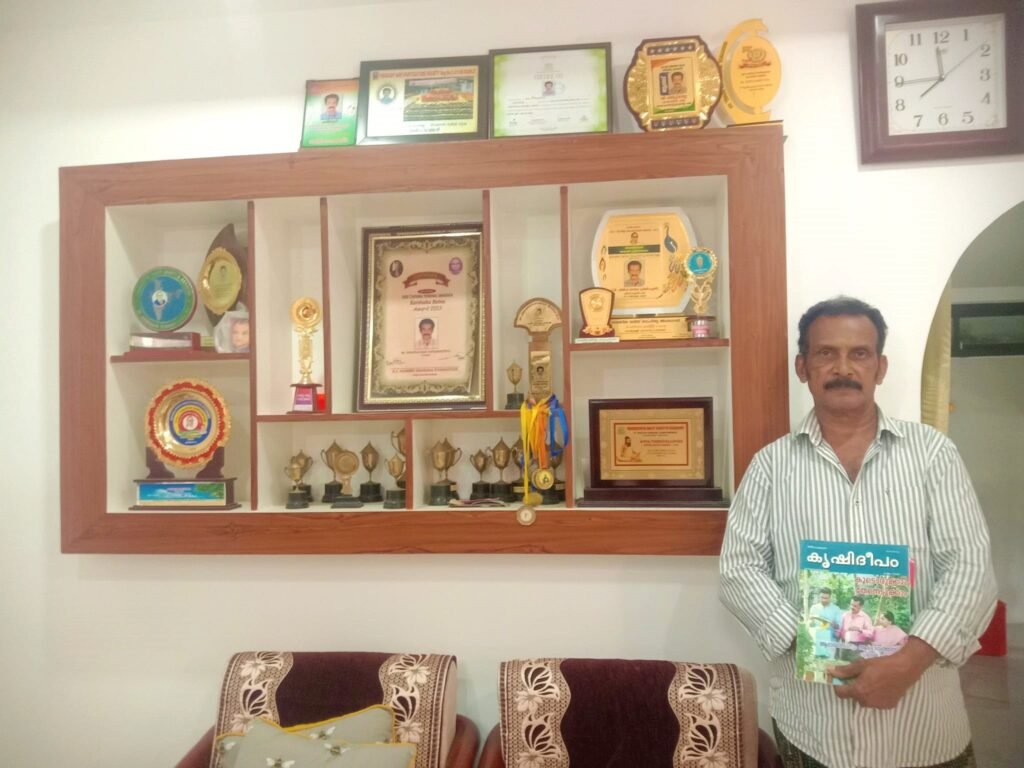
Tom’s Father Philip Mathew who is now 65 years young, has won several awards and accolades for his contributions to apiculture. He was the recipient of the Dr. Ambedkar Sewashree National Award in 2015 and has won over ten State level Awards including the Ayya Thiruvalluvar State Award from Tamil Nadu during his career.
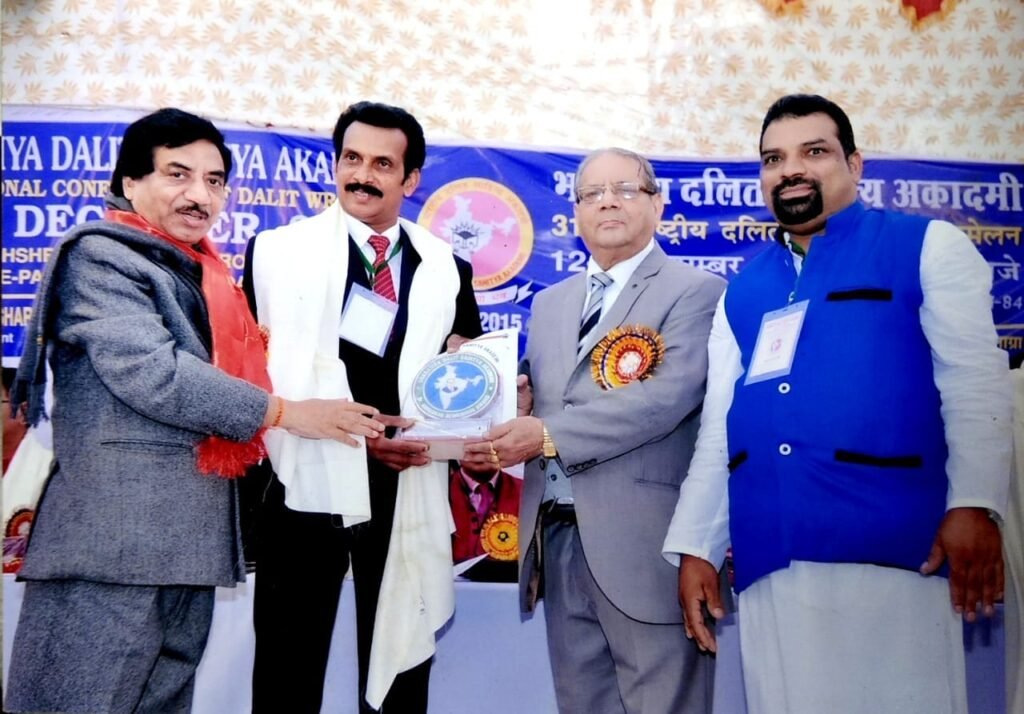
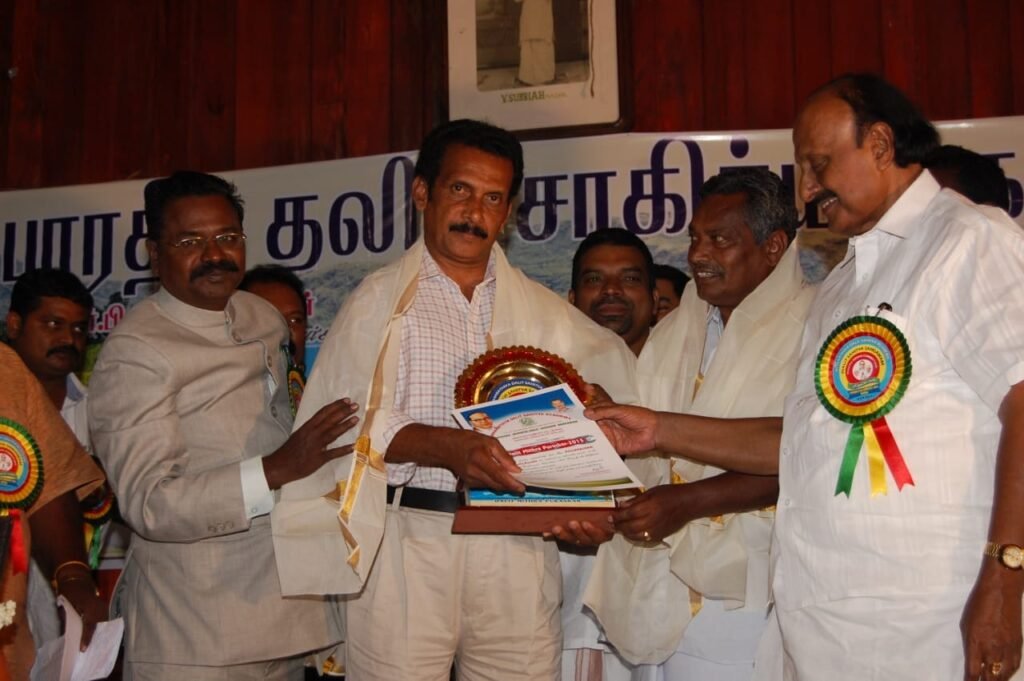
Philip and Tom gladly welcome visitors to their Farm and take them on a guided tour of their farm at no cost. The Philips family lives across the road from their farm and their house reveals their passion for bees and apiculture. Their house too is surrounded by hives of different shapes and sizes all around and only reveal their love for the Bees.
Visitors are also given a taste of the honey cultivated in their Farm. While they also sell their produce here, there is no compulsion and only those who are satisfied with the quality, taste and price are welcome to buy their honey.
We at Kumily Calling highly recommend a tour of the farm and interested visitors can contact Tom Philip for a visit or to place an order for honey by contacting him on his mobile: +91 9400021196 or +91 9961462885
